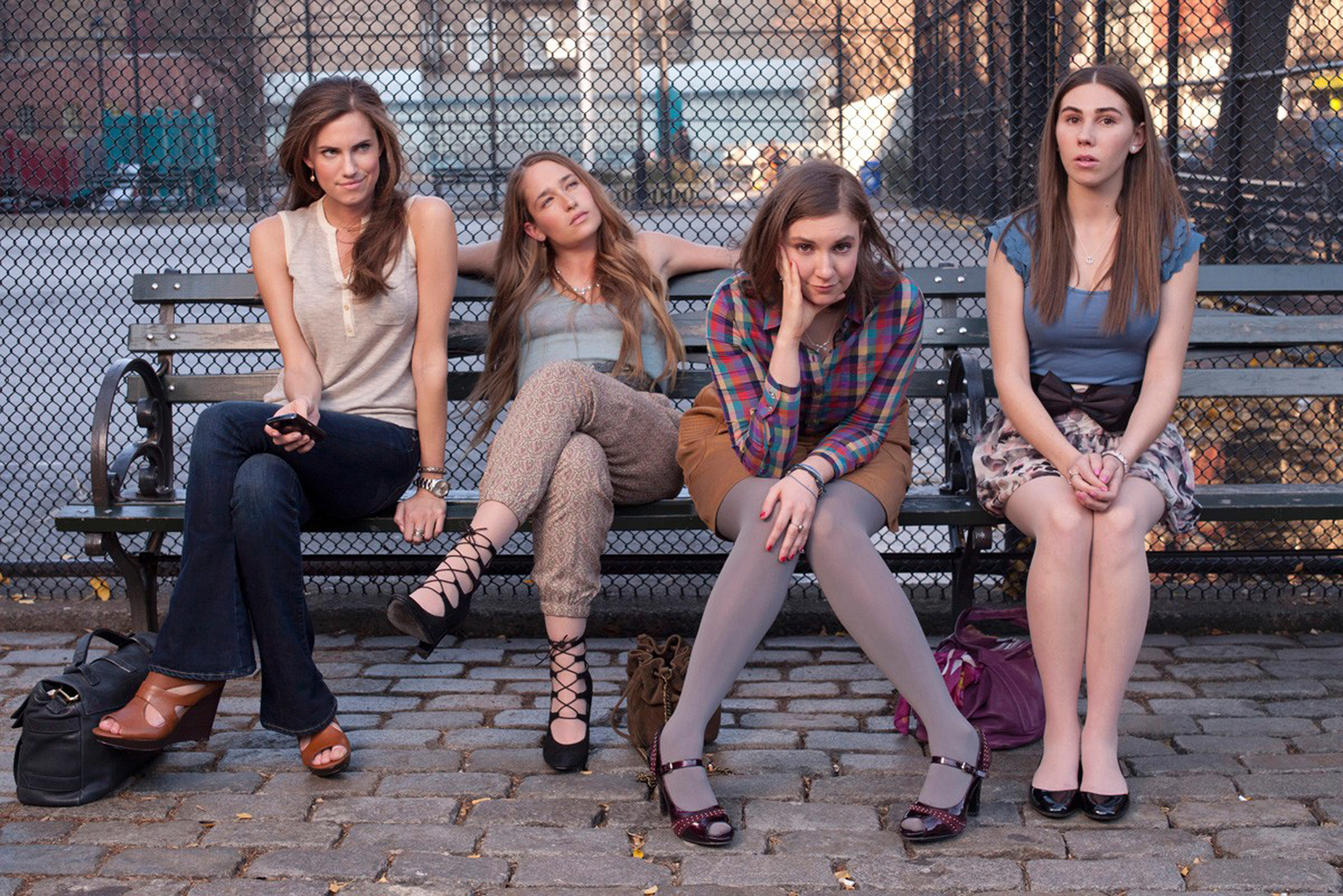Another episode of HBO’s GIRLS and another stream of vitriolic online hate. Who would guess a half-hour, non-violent, relatively benign program could garner such spiteful feedback.
Maybe what’s making us squirm so much is that GIRLS is a little too realistic in its portrayal of Generation Y.
Yep, this just got personal.
The interesting thing about GIRLS haters is that they’re very non-specific in their ALL CAPS RAGE.
Take lead actress and series creator Lena Dunham’s frequent nudity – no one is able to quite say why this bothers them.
A lot of noncommittal noise is made about it being gratuitous or distracting, primarily because saying she’s not conventionally sexy is not very politically correct.
Considerably less people tweet their anger when Game of Throne’s Khaleesi (Emilia Clarke) frequently appears nude, but her body is generally considered a divine gift to mankind.
Isn’t it strange that a vision of normality like Lena Dunham is crucified, while unattainable and unrealistic perfection like Emilia Clarke’s goes without remark?
Similarly, the relationships portrayed in GIRLS are far from fairy tale perfect. Hannah’s occasional lover Adam is cringe worthy in his callous regard of Hannah’s feelings and body.
What is more cringe worthy however is Hannah’s willingness to accept this treatment. She doesn’t feel that she deserves better.
GIRLS does not rely on the archetypal males of other prime time shows (they are not lazy, sleazy or beer loving) or if they are, it is only a minor facet of their character.
The male characters are surprisingly vulnerable and needy (take Marnie and Charlie’s relationship).
They also do not play the villain to the heroine’s independence (Adam suddenly becomes adoring, when he feels safe in Hannah’s mutual affection) but are willing to reciprocate and desire a sensible and realistic relationship.
In fact, Hannah actually hurts Adam with her aloofness, turning the tables on gender stereotypes in relationships.
The notion that men can be vulnerable in relationships, and women can injure men emotionally, is ground regularly covered in GIRLS which other shows fail to address.
Unfortunately, GIRLS is sometimes a bit too real, which appears to be what’s making everyone squirm.
From Lena Dunham’s average physique to the disrespect she allows from Adam, Shoshanna’s sexual frustration and Marnie’s dead end career, Dunham’s show is scarily similar to the real lives of young women.
The target demographic – Generation Y females – were raised watching ‘90’s television heroines like Buffy, Xena and Carrie Bradshaw. Relationships were seen as weaknesses, side plots or avenues for our protagonist to assert her sexual dominance.
Hannah’s latest confession (the desire for a safe relationship) speaks to tired feminists a bitter truth – not all women are superheroes.
Despite the empowerment women have experienced since feminism’s inception, bad sex, low self-esteem, stagnating careers and less-than-perfect bodies are still daily issues.
That’s why there are so many outright lovers or haters of GIRLS, because it depends on whether or not you’re aware of (or satisfied with) your own reality.
At the end of the GIRLS pilot, Hannah announces to her parents, “I think I can be the voice of my generation.”
This might well be true, but it seems most of us aren’t ready for it.
Elloise Foster
Image © 2012 HBO


